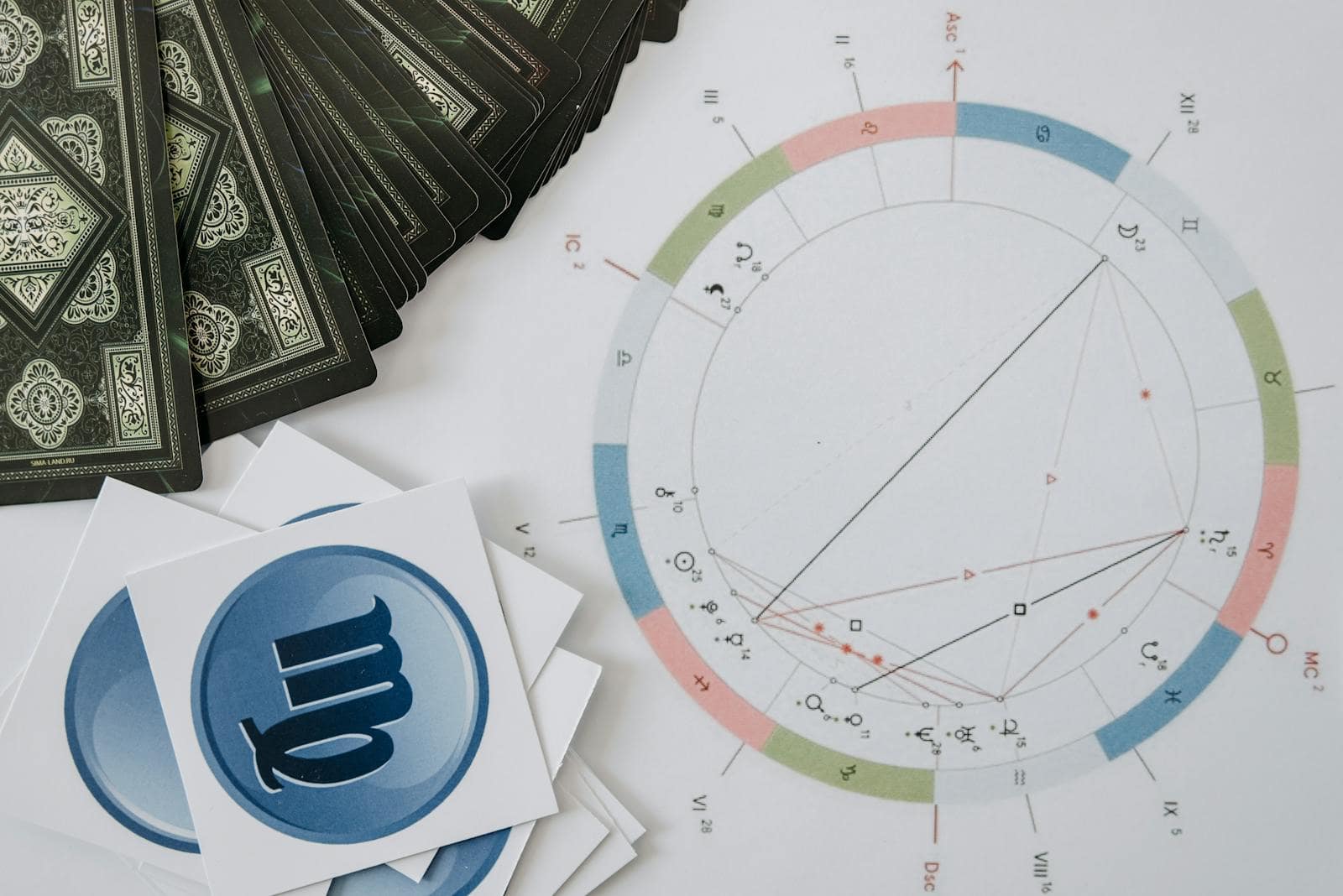Astrology, a practice that intertwines celestial movements with human affairs, has roots that stretch back thousands of years. The earliest known astrological records date to the Babylonians around the second millennium BCE. They meticulously observed the night sky, charting the movements of celestial bodies and correlating them with earthly events.
This early form of astrology was primarily concerned with predicting agricultural cycles and significant events, such as the rise and fall of kings. The Babylonians divided the sky into twelve sections, each corresponding to a constellation, which laid the groundwork for what we now recognize as the zodiac. As astrology evolved, it spread across cultures, adapting to local beliefs and practices.
The Greeks, particularly during the Hellenistic period, played a pivotal role in shaping modern astrology. Figures like Ptolemy synthesized Babylonian and Egyptian astrological knowledge, creating a comprehensive system that included the twelve zodiac signs we are familiar with today. The Greeks introduced the concept of personal horoscopes, emphasizing individual destinies based on the positions of celestial bodies at the time of one’s birth.
This shift marked a significant transition from a collective understanding of astrology to a more personalized approach, which continues to influence astrological practices in contemporary society.
Key Takeaways
- Astrology has ancient origins, with the zodiac signs tracing back to Babylonian and Egyptian civilizations.
- Each of the 12 zodiac signs has unique meanings and characteristics, influencing personality traits and behaviors.
- Astrology can offer insights into personality and relationship dynamics, helping individuals understand themselves and others better.
- The zodiac signs are categorized into four elements (fire, earth, air, water) and three modalities (cardinal, fixed, mutable), shaping their qualities and tendencies.
- Planetary rulers play a significant role in astrology, influencing the traits and behaviors associated with each zodiac sign.
Understanding the 12 Zodiac Signs: Exploring Their Meanings and Characteristics
The twelve zodiac signs, each with its unique symbolism and characteristics, form the backbone of astrological interpretation. Aries, the first sign of the zodiac, is often associated with traits such as courage, impulsiveness, and leadership. Ruled by Mars, Aries individuals are known for their fiery energy and pioneering spirit.
They thrive on challenges and are often seen as trailblazers in various aspects of life. In contrast, Taurus, represented by the bull and ruled by Venus, embodies stability, sensuality, and a love for comfort. Taureans are typically grounded individuals who appreciate the finer things in life and are known for their determination and reliability.
Gemini, ruled by Mercury, introduces a duality that reflects its symbol of the twins. Geminis are characterized by their adaptability, curiosity, and sociability. They possess a natural gift for communication and often find themselves drawn to diverse interests and experiences.
Cancer, on the other hand, is ruled by the Moon and is associated with emotional depth, intuition, and nurturing qualities. Those born under this sign are often sensitive and empathetic, valuing their connections with family and close friends. Each zodiac sign carries its own set of strengths and weaknesses, contributing to a rich tapestry of human personality traits.
The Influence of Astrology on Personality and Relationships

Astrology offers profound insights into personality dynamics and interpersonal relationships. By examining an individual’s sun sign—determined by their birth date—astrologers can glean essential information about their core identity and motivations. For instance, a Leo, ruled by the Sun, often exudes confidence and charisma, making them natural leaders in social settings.
Their desire for recognition can sometimes lead to clashes with more introverted signs like Virgo or Capricorn, who may prioritize practicality over flamboyance. Moreover, astrology extends beyond sun signs to encompass moon signs and rising signs (ascendants), which further refine personality profiles. The moon sign reflects emotional responses and inner needs, while the rising sign influences how individuals present themselves to the world.
For example, someone with a Scorpio moon may experience intense emotions but might project a more approachable demeanor due to a Libra rising. Understanding these nuances can enhance interpersonal relationships by fostering empathy and awareness of differing emotional landscapes.
Exploring the Elements and Modalities of the Zodiac Signs
| Zodiac Sign | Element | Modality |
|---|---|---|
| Aries | Fire | Cardinal |
| Taurus | Earth | Fixed |
| Gemini | Air | Mutable |
| Cancer | Water | Cardinal |
| Leo | Fire | Fixed |
| Virgo | Earth | Mutable |
| Libra | Air | Cardinal |
| Scorpio | Water | Fixed |
| Sagittarius | Fire | Mutable |
| Capricorn | Earth | Cardinal |
| Aquarius | Air | Fixed |
| Pisces | Water | Mutable |
The twelve zodiac signs are categorized into four elements—fire, earth, air, and water—each representing distinct qualities and temperaments. Fire signs (Aries, Leo, Sagittarius) are known for their passion, enthusiasm, and spontaneity. They often inspire others with their zest for life but can also be prone to impulsiveness.
Earth signs (Taurus, Virgo, Capricorn) embody practicality, stability, and a strong connection to the material world. They are typically reliable individuals who value security but may struggle with rigidity or resistance to change. Air signs (Gemini, Libra, Aquarius) are characterized by their intellect, communication skills, and social nature.
They thrive on ideas and interactions but may sometimes come across as detached or overly analytical. Water signs (Cancer, Scorpio, Pisces) are deeply intuitive and emotional beings who navigate life through feelings rather than logic. Their empathetic nature allows them to connect profoundly with others but can also lead to emotional overwhelm if not managed properly.
In addition to elements, zodiac signs are also classified into three modalities: cardinal, fixed, and mutable. Cardinal signs (Aries, Cancer, Libra, Capricorn) are initiators who thrive on new beginnings and leadership roles. Fixed signs (Taurus, Leo, Scorpio, Aquarius) are known for their determination and consistency but may resist change or become stubborn in their ways.
Mutable signs (Gemini, Virgo, Sagittarius, Pisces) are adaptable and flexible, often excelling in situations that require quick thinking or adjustment.
The Role of Planetary Rulers in Astrology
Each zodiac sign is governed by a specific planet that imparts unique qualities and influences on individuals born under that sign. For instance, Mars rules Aries and is associated with assertiveness and action-oriented traits. This connection explains why Aries individuals often exhibit boldness in pursuing their goals.
Venus governs Taurus and Libra, imbuing these signs with an appreciation for beauty, harmony, and relationships. Taureans may find joy in material comforts while Libras seek balance in partnerships. The influence of planetary rulers extends beyond sun signs; it also affects personal planets in an individual’s natal chart.
For example, someone with a strong Jupiter influence may exhibit traits of optimism and expansion regardless of their sun sign. Jupiter’s association with growth can lead individuals to seek opportunities for learning and exploration throughout their lives. Conversely, Saturn’s influence can instill discipline and responsibility but may also bring challenges related to authority or self-doubt.
Understanding planetary rulers allows individuals to navigate their astrological charts more effectively. By recognizing how these celestial bodies interact with one another within a natal chart—through aspects such as conjunctions or oppositions—astrologers can provide deeper insights into an individual’s strengths and challenges.
The Power of Astrological Transits and Retrogrades

Astrological transits refer to the ongoing movement of planets through the zodiac signs relative to an individual’s natal chart. These transits can significantly impact various aspects of life—ranging from personal growth to relationship dynamics—by activating specific areas within one’s chart. For instance, when Jupiter transits through an individual’s fifth house of creativity and self-expression, they may experience a surge in artistic inspiration or opportunities for romance.
Retrogrades are another crucial aspect of astrological transits that often garner attention due to their perceived challenges. When a planet appears to move backward in its orbit from our perspective on Earth—such as Mercury retrograde—it is believed to create disruptions in communication, technology, and travel. However, retrogrades also offer opportunities for reflection and reassessment.
For example, during a Mercury retrograde period, individuals might revisit past projects or relationships to gain clarity before moving forward. Astrologers emphasize that while transits can bring challenges or opportunities depending on their nature—harmonious aspects versus challenging ones—they ultimately serve as catalysts for growth. By understanding how these celestial movements interact with personal natal charts over time, individuals can better navigate life’s ebbs and flows.
Harnessing the Energy of Your Sun, Moon, and Rising Signs
The sun sign represents an individual’s core identity—the essence of who they are at their most fundamental level—while the moon sign reveals emotional needs and instinctual responses. The rising sign (ascendant) reflects how one presents themselves to the world; it acts as a mask that shapes first impressions. Together, these three components create a comprehensive picture of an individual’s personality.
Harnessing this energy involves recognizing how each sign influences behavior and decision-making processes. For instance, someone with a Leo sun may naturally gravitate toward leadership roles due to their inherent confidence; however, if they have a Pisces moon that craves emotional connection, they might find themselves torn between assertiveness and sensitivity in relationships. Understanding these dynamics allows individuals to embrace their strengths while addressing potential conflicts between different aspects of their personality.
Moreover, individuals can use this knowledge for personal development by consciously aligning their actions with their sun sign’s strengths while nurturing their moon sign’s emotional needs. For example, a Capricorn rising might focus on projecting professionalism in social situations but should also make space for vulnerability—reflective of their Cancer moon—to foster deeper connections.
Using Astrology for Self-Discovery and Personal Growth
Astrology serves as a powerful tool for self-discovery by providing insights into one’s inherent traits and tendencies. By exploring natal charts—comprising not only sun signs but also moon signs, rising signs, houses, aspects between planets—individuals can gain clarity about their motivations and challenges throughout life’s journey. This understanding fosters greater self-acceptance as individuals learn to appreciate both strengths and weaknesses inherent in their astrological makeup.
Furthermore, astrology encourages personal growth through its emphasis on cycles—both personal cycles related to transits as well as broader cosmic cycles that influence collective experiences over time. By recognizing when certain energies are at play—such as during significant transits or retrogrades—individuals can harness these moments for introspection or action accordingly. For example, during a Saturn return—a significant astrological event occurring approximately every 29 years—individuals often face pivotal life changes that prompt them to reassess goals or commitments.
Embracing this transformative period can lead to profound personal growth as individuals confront challenges head-on while aligning themselves more closely with their authentic selves. In conclusion, astrology offers a rich tapestry of insights into human behavior through its exploration of zodiac signs’ origins; meanings; influences on personality; elements; modalities; planetary rulers; transits; sun/moon/rising energies; self-discovery avenues—all contributing toward holistic understanding of oneself within larger cosmic context.
If you’re keen on understanding how specific astrological events might influence your zodiac sign, you might find the article on the Astrology of Storm Ciaran intriguing. This piece delves into the astrological implications of the storm that occurred from November 1 to 4, 2023, described as a mighty cyclone bomb. It explores how such significant meteorological and astrological phenomena could potentially impact your personal astrological outlook. For a detailed analysis, you can read more about it here.
FAQs
What are astrology signs?
Astrology signs, also known as zodiac signs, are a system of twelve symbols based on the constellations that are said to influence a person’s personality, behavior, and destiny.
What are the twelve astrology signs?
The twelve astrology signs are Aries, Taurus, Gemini, Cancer, Leo, Virgo, Libra, Scorpio, Sagittarius, Capricorn, Aquarius, and Pisces.
How are astrology signs determined?
Astrology signs are determined by the position of the sun at the time of a person’s birth. Each sign is associated with specific dates in the calendar year.
What do astrology signs reveal about a person?
Astrology signs are believed to reveal certain personality traits, strengths, weaknesses, and tendencies of individuals based on the characteristics associated with each sign.
Can astrology signs predict the future?
Astrology signs are not scientifically proven to predict the future. They are more commonly used to provide insight into a person’s character and behavior.
What is the significance of astrology signs?
Astrology signs are significant to many people as they provide a framework for understanding themselves and others, as well as for making decisions and choices in life.




